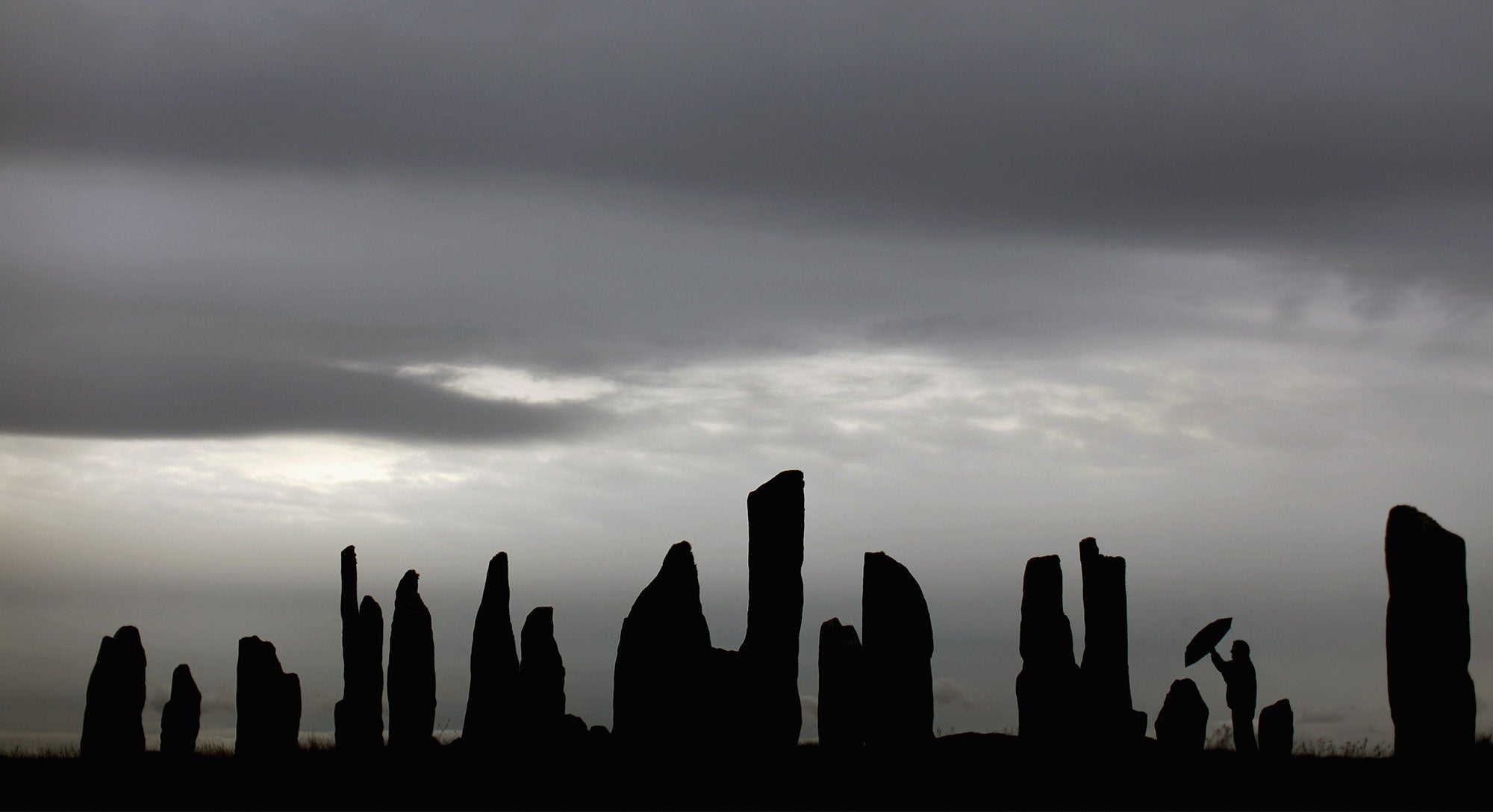Shetland, Orkney and the Outer Hebrides demand independence referendums of their own if Scotland votes 'yes'
Calls for a vote on breaking links with Edinburgh are growing among the island communities

Your support helps us to tell the story
From reproductive rights to climate change to Big Tech, The Independent is on the ground when the story is developing. Whether it's investigating the financials of Elon Musk's pro-Trump PAC or producing our latest documentary, 'The A Word', which shines a light on the American women fighting for reproductive rights, we know how important it is to parse out the facts from the messaging.
At such a critical moment in US history, we need reporters on the ground. Your donation allows us to keep sending journalists to speak to both sides of the story.
The Independent is trusted by Americans across the entire political spectrum. And unlike many other quality news outlets, we choose not to lock Americans out of our reporting and analysis with paywalls. We believe quality journalism should be available to everyone, paid for by those who can afford it.
Your support makes all the difference.After spending more than half a millennium under Norse rule, it is little surprise the people of Shetland and Orkney might not consider themselves to be British in the same way as the good folk of Surrey.
So too the islanders of the Outer Hebrides, who offered sanctuary to a fleeing Bonnie Prince Charlie after his defeat by loyalist forces at Culloden.
But an unexpected question has crept into the narrowing independence referendum campaign – exactly how Scottish do they feel?
Lerwick, the capital of Shetland, for example, is 18 hours by road and boat from Edinburgh – more than double the journey time from the Scottish capital to Westminster.
Now members of these storm-lashed, fiercely independent and unique communities are being asked to put their name to a demand that could see both Northern and Western Islands separate from an independent Scotland – should it decide to go it alone in September.

A petition currently before the Scottish Parliament is seeking referendums to be held on all three islands exactly a week after the rest of the nation votes on the future of the union with Westminster.
In the event it should get the go-ahead, the 70,000 inhabitants will be given the choice of either staying in Scotland or seeking independence of their own. A third question following a successful yes vote will offer the possibility of staying within the UK while seceding from control of Holyrood.
So far nearly 800 people have put their name to the call, and the suggestion has been generating interest all over the world – not least in other small islands, and even in Venice.
Catriona Murray of "Referenda on the Islands", which organised the petition, denied claims that the group was a front for the unionist campaign or merely some kind of diversion tactic from the main debate.
She said supporters straddled all points of view although the petition had deliberately not included an option of reunification with Norway which, although sometimes discussed, did not garner serious support.
“We exist only to bring about a referendum to give islanders the chance to decide. What unites us is the view that islanders should have that right. We are certainly not making mischief,” retiree Ms Murray told The Independent by email from her home in Stornoway.
“Monaco, Liechtenstein and San Marino all thrive well as independent members of the United Nations. Any of the three island groups currently in Scotland could easily fit on to a list including those countries. Not as rich as the first two, but with more resources than the third,” she added.
It is estimated that up to 67 per cent of Scotland’s oil and gas reserves lie within the waters off Shetland and Orkney. All the islands have lucrative off shore renewable energy potential although bringing it down to population areas remains contentious.
Steve Heddle, Convenor of the Orkney Islands Council, and part of the non-partisan umbrella group "Our Islands, Our Future" said there was an urgent case for the communities to be given greater control over their destinies.
“My personal opinion is that this [petition] is mischief-making here. There is obviously an appetite among some people for this but I don’t know exactly how well thought out this is,” he said. “We need to keep things realistic and reasonable and keep arguing and then we have a chance of winning,” he added.
Since last summer, the councils of Orkney, Shetland and the Western Isles have been negotiating with the SNP government in Edinburgh and Westminster and the Labour Party to see what extra powers they might gain. There have already been successes.
Last July, First Minister Alex Salmond held a Scottish cabinet meeting in Shetland, where he issued the Lerwick Declaration, agreeing in principle to greater autonomy for the islands. Since then island leaders have met ministers five times.
The Scottish Labour Devolution Commission has agreed to grant the islands greater control over energy, transport and fishing policy as well as a bigger say in health and economic planning. Talks have also been held with the Secretary of State for Scotland.
But Shetland’s Liberal Democrat MSP Tavish Scott said demands for referendums within the islands were “entirely understandable”.
“The SNP is holding a gun to the islanders’ heads and saying 'I will not do anything for you unless you vote yes'. It is like the proverbial English colonial governor telling the natives what to do. People in the islands are very independent minded and they do not like being treated like this,” he said.
A spokesman for Yes Scotland said post-referendum issues were a matter for the Scottish Government.
Join our commenting forum
Join thought-provoking conversations, follow other Independent readers and see their replies
Comments